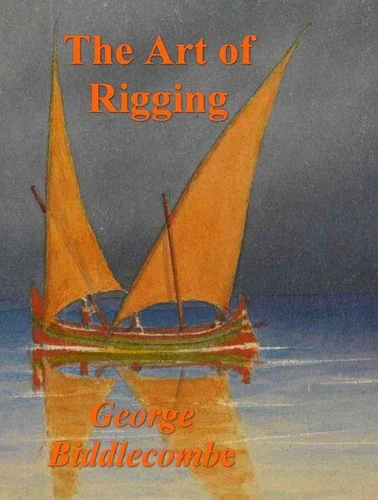The Art of Rigging
Par :Formats :
Disponible dans votre compte client Decitre ou Furet du Nord dès validation de votre commande. Le format ePub est :
- Compatible avec une lecture sur My Vivlio (smartphone, tablette, ordinateur)
- Compatible avec une lecture sur liseuses Vivlio
- Pour les liseuses autres que Vivlio, vous devez utiliser le logiciel Adobe Digital Edition. Non compatible avec la lecture sur les liseuses Kindle, Remarkable et Sony
 , qui est-ce ?
, qui est-ce ?Notre partenaire de plateforme de lecture numérique où vous retrouverez l'ensemble de vos ebooks gratuitement
Pour en savoir plus sur nos ebooks, consultez notre aide en ligne ici
- FormatePub
- ISBN978-80-87830-58-1
- EAN9788087830581
- Date de parution08/05/2025
- Protection num.Digital Watermarking
- Taille21 Mo
- Infos supplémentairesepub
- ÉditeurRare Treasure Editions
Résumé
First published in 1848, written by George Biddlecombe (1807-1878).
Although mastery of the art of rigging is no longer required on board today's ships, legions of serious model ship builders who wish to rig their ships correctly need to learn the art. This book is widely considered the best manual ever produced on rigging the sailing ship.
The book is divided into five parts:
The First Part contains an alphabetical explanation of terms and phrases used in rigging.
The Second Part consists of directions for the performance of operations incidental to rigging and preparing it on shore, with a table of the comparative strength of chain and rope. The Third Part contains the progressive method of rigging ships. The Fourth Part contains a description of reeving the running rigging and bending the sails in addition to the rigging of brigs, yachts, and small vessels.
The Fifth Part comprises tables of the quantities and dimensions of the standing and running rigging of ships, brigs, fore-and-aft schooners, and cutters, with the species, size, and number of blocks, hearts, dead-eyes, etc. Serious modelists, naval historians, armchair skippers - any sailing buff - will want to own a copy of The Art of Rigging. Complete and wonderfully clear, it belongs in every maritime library.
The Second Part consists of directions for the performance of operations incidental to rigging and preparing it on shore, with a table of the comparative strength of chain and rope. The Third Part contains the progressive method of rigging ships. The Fourth Part contains a description of reeving the running rigging and bending the sails in addition to the rigging of brigs, yachts, and small vessels.
The Fifth Part comprises tables of the quantities and dimensions of the standing and running rigging of ships, brigs, fore-and-aft schooners, and cutters, with the species, size, and number of blocks, hearts, dead-eyes, etc. Serious modelists, naval historians, armchair skippers - any sailing buff - will want to own a copy of The Art of Rigging. Complete and wonderfully clear, it belongs in every maritime library.
First published in 1848, written by George Biddlecombe (1807-1878).
Although mastery of the art of rigging is no longer required on board today's ships, legions of serious model ship builders who wish to rig their ships correctly need to learn the art. This book is widely considered the best manual ever produced on rigging the sailing ship.
The book is divided into five parts:
The First Part contains an alphabetical explanation of terms and phrases used in rigging.
The Second Part consists of directions for the performance of operations incidental to rigging and preparing it on shore, with a table of the comparative strength of chain and rope. The Third Part contains the progressive method of rigging ships. The Fourth Part contains a description of reeving the running rigging and bending the sails in addition to the rigging of brigs, yachts, and small vessels.
The Fifth Part comprises tables of the quantities and dimensions of the standing and running rigging of ships, brigs, fore-and-aft schooners, and cutters, with the species, size, and number of blocks, hearts, dead-eyes, etc. Serious modelists, naval historians, armchair skippers - any sailing buff - will want to own a copy of The Art of Rigging. Complete and wonderfully clear, it belongs in every maritime library.
The Second Part consists of directions for the performance of operations incidental to rigging and preparing it on shore, with a table of the comparative strength of chain and rope. The Third Part contains the progressive method of rigging ships. The Fourth Part contains a description of reeving the running rigging and bending the sails in addition to the rigging of brigs, yachts, and small vessels.
The Fifth Part comprises tables of the quantities and dimensions of the standing and running rigging of ships, brigs, fore-and-aft schooners, and cutters, with the species, size, and number of blocks, hearts, dead-eyes, etc. Serious modelists, naval historians, armchair skippers - any sailing buff - will want to own a copy of The Art of Rigging. Complete and wonderfully clear, it belongs in every maritime library.



